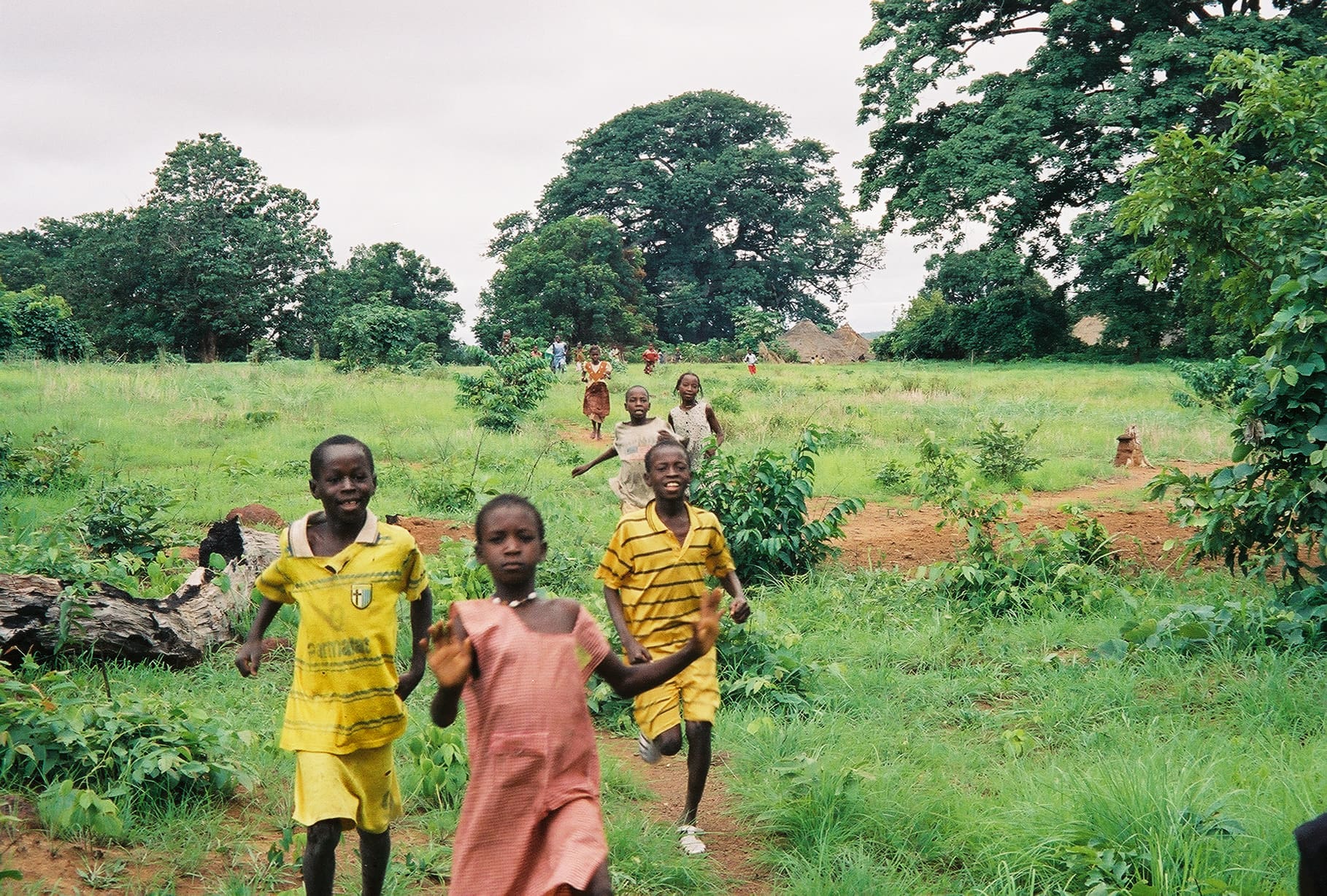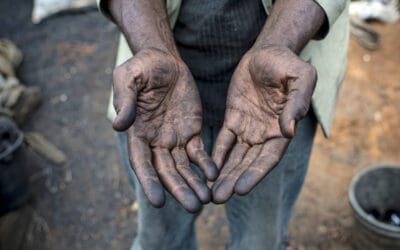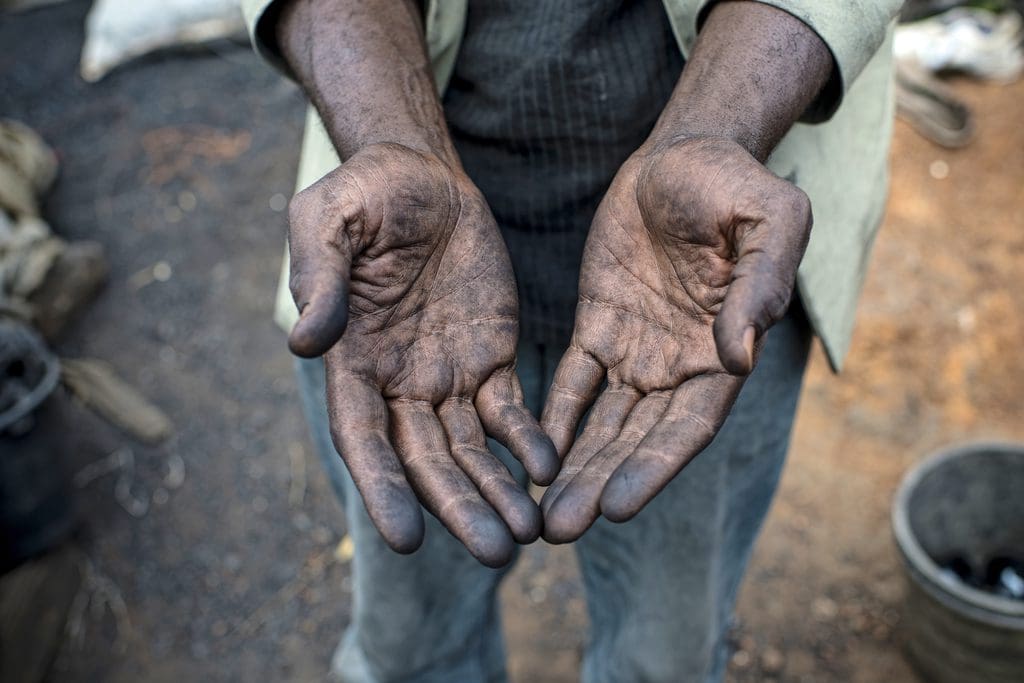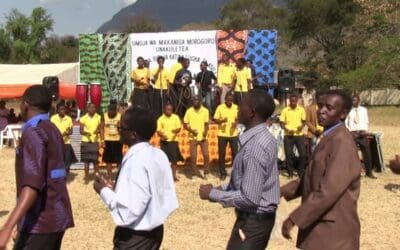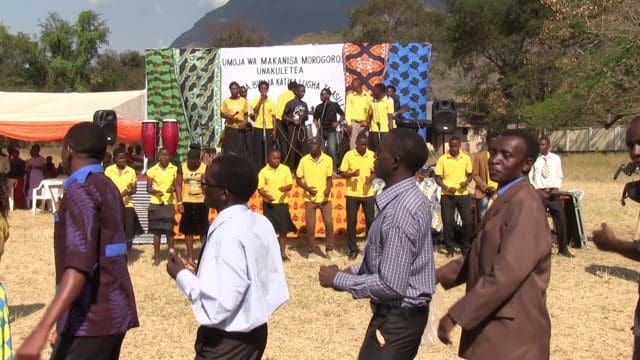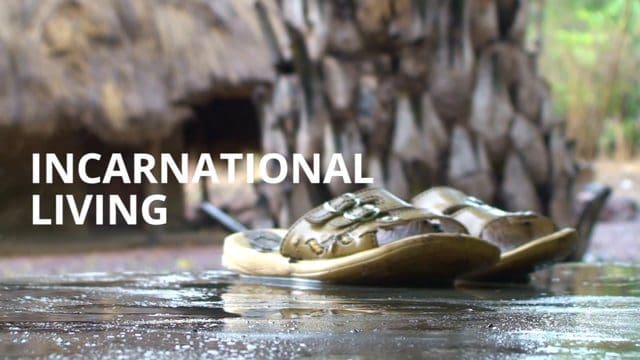When we landed in West Africa for the first time, I naturally took everything in through my own cultural lens, though I mistakenly believed myself to be open-minded and impartial. It is a noble goal to be unbiased in our assessments of life, but since the only way we can truly see things is through our own perspective, complete objectivity is impossible. Consequently, when we are faced with a situation that goes against what we recognize as normal, an instinctive reaction is to interpret that experience as wrong, without any contention, unless something or someone challenges that interpretation.
For me, that challenge came sooner than I expected.
As part of our orientation, our blond-haired, blue-eyed family of six arrived rather conspicuously in a small village, where our colleagues were tasked with helping us learn the ins and outs of village life in West Africa. I was immediately impressed by the abundance of children everywhere I looked. Children of all ages and sizes were weaving through the market, wandering through the fields, mingling with the sheep, and gathering on the porches of the village huts.
In a society that raises children more collectively than individually, I assumed that children were largely invisible to their adult counterparts. Without question, I knew they were needed to share in the work of subsistence farming, but once the work was done, they would find each other and meander through the village, collecting trash that had the potential to be made into toys and gleaning any unclaimed leftover food. The kids were left to their own devices, and I understood that to mean they were neglected and unwanted, because I had no reason to challenge that interpretation — until a village chief behaved in a very unexpected way.
Our hosts explained that it is customary for guests to greet the chief as a token of respect and a recognition of his position. So after unloading our bags, we set off through the village to offer our greetings.
As we walked, we quickly began to attract little followers. Small children, mostly younger than 6 or 7, and their even smaller brothers and sisters came alongside us. They were quiet but curious, and the farther we walked, the more children we picked up along the way. Like a snowball growing steadily in mass and size with each revolution down a hill, our group was growing as we progressed steadily across the village.
Among the collection of yards and paths and huts that were scattered in every direction stood a small rectangular concrete building with a tin roof, a wooden door, and a few small windows. This was the home of the chief — the most important and most respected person in the village.
By the time we arrived at his front door, our snowball had gained about 20 kids, and several more were standing shyly nearby.
Our hosts voiced the customary “konk konk” to signal our arrival, and when the door was opened, the chief motioned for us to enter his home. We stepped over the threshold, ducking carefully through the small wooden doorway. The room was without pretense. No tile, carpet, or rugs decorated the floor; no electricity offered light to the dark shadows. There was nothing at all in the room except for a few tattered soccer posters on the wall and a handful of wooden chairs. Eager helpers immediately began carrying in various chairs and stools from other rooms and huts.
We began the formality of offering our hands in a gesture of greeting to each person in the room. When that was accomplished, we sat down and the chief began the process of officially welcoming us into his village.
The door of his hut remained open, and the children we had collected outside began approaching the doorway, hoping to see what was happening inside. Curiosity compelled them forward. They pressed together and crowded into the doorway, blocking much of the natural light available to the room. It was clear that they were attempting to be quiet, but for a large number of children in a very small space, that was difficult to accomplish. They were both seen and heard.
The actions of a village chief challenged my interpretation of the children’s place in his community.
The chief paused his welcome speech and looked at them. I expected a reprimand to follow, or at least an admonishment to find somewhere else to gather. He began to speak in their general direction. Several children scampered off but returned quickly with a long wooden bench. Many hands and many ideas made the maneuvering of this bench through the doorway rather comical, but they persisted. Soon the newest piece of furniture was placed near one of the cement walls, and about 12 children darted into the room to squeeze onto it. Without speaking, they sat with eyes wide and ears open to all that was going on around them. Order was restored to the meeting, and the chief resumed his welcome speech.
What I had expected to be words of dismissal directed to the children were actually words of hospitality.
As I watch this event play out again in my memory, I hear Jesus saying, “Let the little children come to me, and do not hinder them, for the kingdom of heaven belongs to such as these” (Matthew 19:14). Through my cultural lens I saw this scene: important people gathering for a formal event, while a group of kids interrupts the meeting. I saw the children as a distraction from the main event.
The chief saw a different scene. In his eyes, the meeting was a village affair. We were not just guests of our colleagues. We were guests of the entire village — including the children. Rather than being scolded and sent away, they were given permission to enter.
The chief was not a Christian, but I saw his kindness towards the children of the village, and I think Jesus would have offered a seat to those kids, too.
Scripture quotation is from the New International Version. Copyright 1984 by Biblica, Inc. Used by permission. All rights reserved worldwide.
